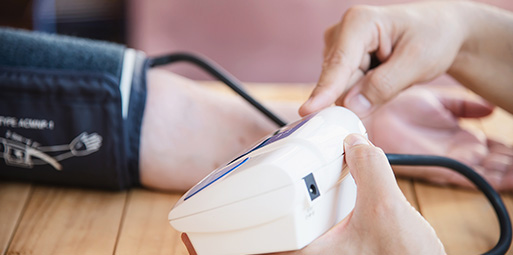9 Hormones That Affect Your Weight — and How to Improve Them
Hormones facilitate nearly every bodily process, including metabolism, hunger, and fullness. Because of their association with appetite, these hormones play a significant role in your weight. They are:
01 – Insulin
Produced by your pancreas, It’s your main storage hormone and promotes the storage of glucose (your body’s fuel) in your muscles, liver, and fat cells for later use. Small amounts are released throughout your day and increased after each meal. Its job is to transfer the energy from your food to your cells for use when your body needs it. Insulin resistance results in high blood sugar levels and is linked to chronic conditions like type 2 diabetes and heart disease. Obesity, (being significantly overweight and belly fat), an inactive lifestyle, and a diet high in carbohydrates are the primary causes.
Insulin sensitivity can be thought of as the opposite of insulin resistance. It means your cells are sensitive to insulin. It’s a good idea to focus on lifestyle habits that help improve insulin sensitivity.

03 – Ghrelin
Ghrelin is essentially the opposite of leptin. It’s the hunger hormone that sends a message to your hypothalamus indicating that your stomach is empty and needs food. Its main function is to increase appetite. Normally, ghrelin levels are highest before eating and lowest after a meal.
02 – Leptin
Leptin is a fullness hormone that works by telling your hypothalamus — the portion of your brain that regulates appetite — that you’re full. If you’re overweight, you may experience leptin resistance. This means the message to stop eating doesn’t reach your brain, eventually causing you to overeat.

04 – Cortisol
Cortisol is known as the stress hormone and is produced by your adrenal glands. In a dangerous situation it’s important your body releases this hormone. During times of stress, it triggers your heart rate and energy levels. The release of cortisol — alongside the hormone adrenaline — is commonly called the “fight or flight” response.
Chronic levels of cortisol can lead to health issues like heart disease, diabetes, low energy levels, high blood pressure, sleep disturbances, and weight gain. Poor sleep habits, chronic stress, and a diet high in carbs & sugars contribute to high cortisol levels. Not only does obesity raise cortisol levels, but high levels may also cause weight gain, creating a negative feedback loop.

05 – Estrogen
Estrogen is a sex hormone responsible for regulating the female reproductive system, as well as the immune, skeletal, and vascular systems.Levels of this hormone change during life stages such as pregnancy, nursing, and menopause, as well as throughout the menstrual cycle. High levels of estrogen are often seen in people with obesity. It’s associated with an increased risk of certain cancers and other chronic diseases. Low levels — typically seen with aging, perimenopause, and menopause — may affect body weight and body fat, therefore also increasing your risk of chronic ailments.
If your levels are low you may experience weight gain especially around your belly. This can lead to health problems such as high blood sugar, high blood pressure, and heart disease.
Both high and low levels of the sex hormone estrogen can lead to weight gain.

06 – Neuropeptide Y
Neuropeptide Y (NPY) is a hormone produced by cells in your brain and nervous system that stimulates appetite and decreases energy expenditure in response to fasting or stress. It’s activated in fat tissue.

07 – Glucagon-like peptide-1
Glucagon-like peptide-1 (GLP-1) is a hormone produced in your gut when nutrients enter your intestines. It plays a major role in keeping blood sugar levels stable and making you feel full.

08 – Cholecystokinin
Like GLP-1, cholecystokinin (CCK) is a fullness hormone produced by cells in your gut after a meal. It’s important for energy production, protein synthesis, digestion, and other bodily functions. It also increases the release of the fullness hormone leptin. CCK is a fullness hormone that you may become desensitized to. This can lead to overeating.

09 – Peptide YY
Peptide YY (PYY) is another gut hormone that decreases appetite. PYY levels may be lower in people with obesity, and this may lead to a greater appetite and overeating. Sufficient levels are believed to play a major role in reducing food intake and decreasing the risk of obesity. Obesity may lead to low levels of the fullness hormone PYY.
Tips to improve your hormone levels
- Exercise regularly. Exercise, at both high and moderate intensities, as a means of improving insulin sensitivity and decreasing insulin resistance.
- Optimize sleep. Chronic sleep issues, including insomnia, sleep apnea and irregular sleep habits can contribute to high or low levels of hormones. Focus on developing a regular bedtime and sleep schedule.
- Get more omega-3 fatty acids. Fish, nuts, seeds, and plant oils are a great source of Omega 3.
- Eat a balanced diet. Includes plenty of protein. The Mediterranean diet — which includes many veggies, as well as healthy fats from nuts and extra-virgin olive oil — may help improve your sensitivity and reverse resistance. Decreasing your intake of saturated and trans fats may also help. Because ghrelin levels are highest before a meal, listen to your body and eat when you’re hungry.
- Consider taking probiotics. Gut health is vitally important for good health.
- Practice mindfulness. Regularly practicing of mindfulness lowers cortisol levels. Try adding meditation to your daily routine
- Maintain a moderate weight. Balanced hormones aid weight management. Avoid sugars and complex carbohydrates.
- Focus on low glycemic carbs. Rather than try to eliminate carbs from your diet, aim to make most of them low glycemic and high fiber. Examples include whole grains, fruits, vegetables, and legumes.
What can Youfemism do?
Support your hormonal balance! .…While you adapt to your new lifestyle changes and eating habits, Youfemism goes to work on your hormonal balance to help you achieve the weight loss you desire, without starving yourself or slogging it out at the gym. No matter your age or stage in life, It’s your Essential Hormone Balancing Cream. There’re no added hormones. Just herbs & essential oils. Your natural alternative to HRT. And it goes to work straight away!


